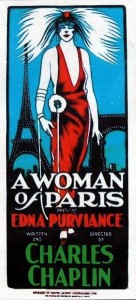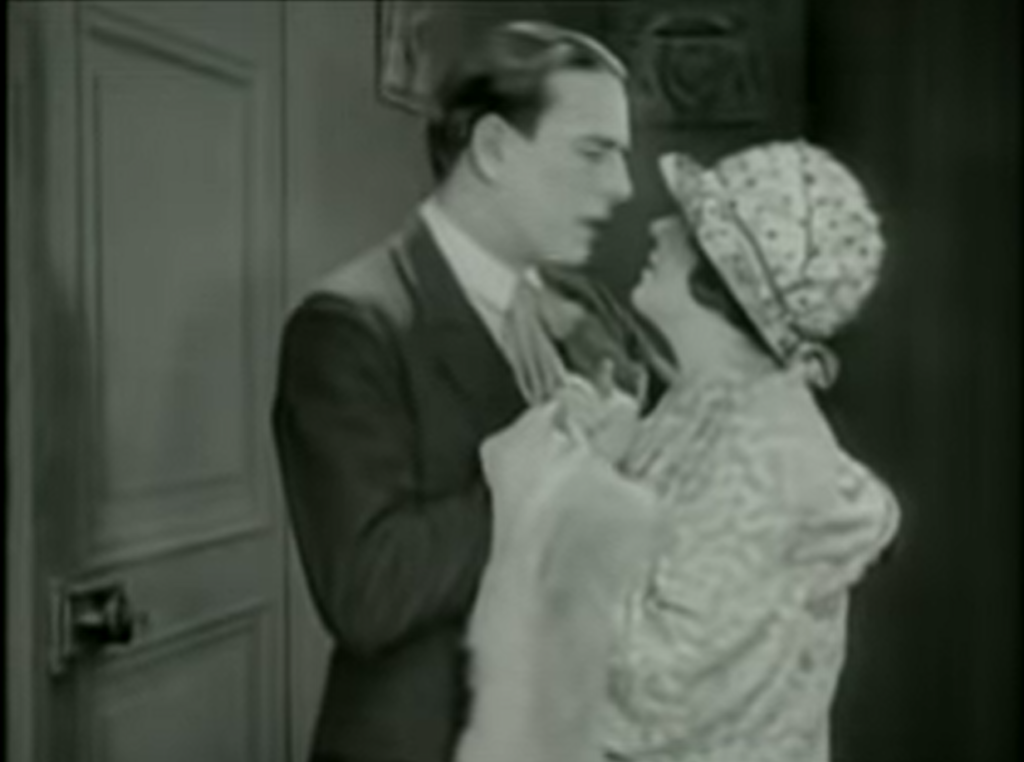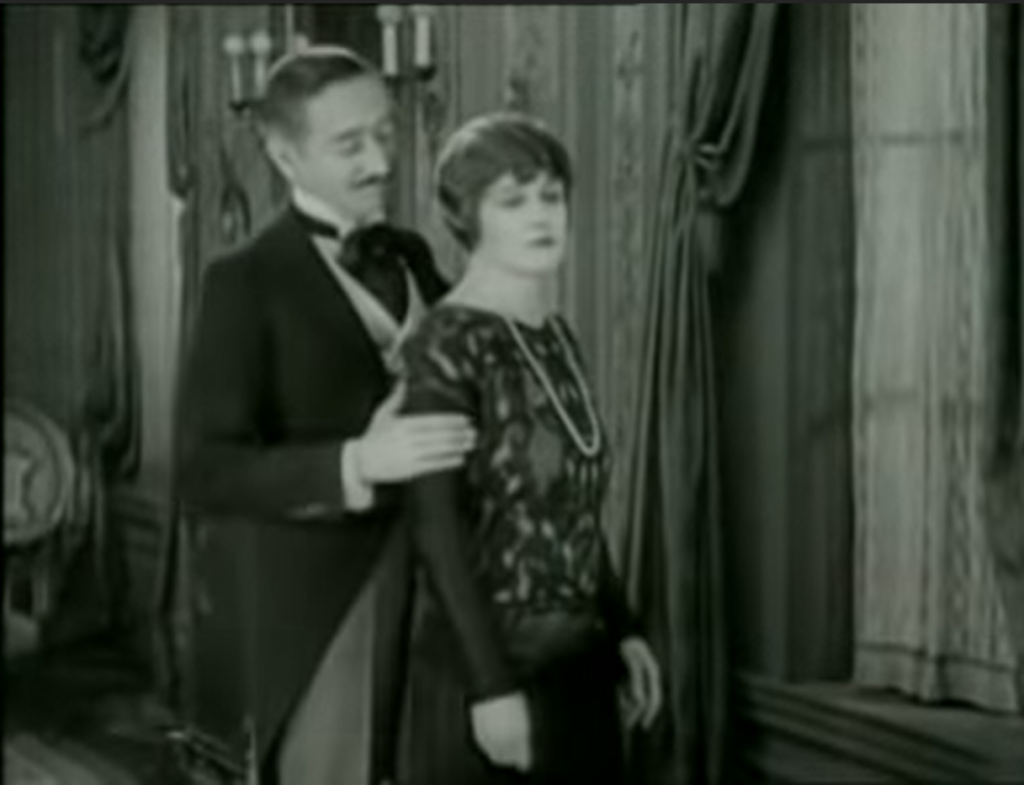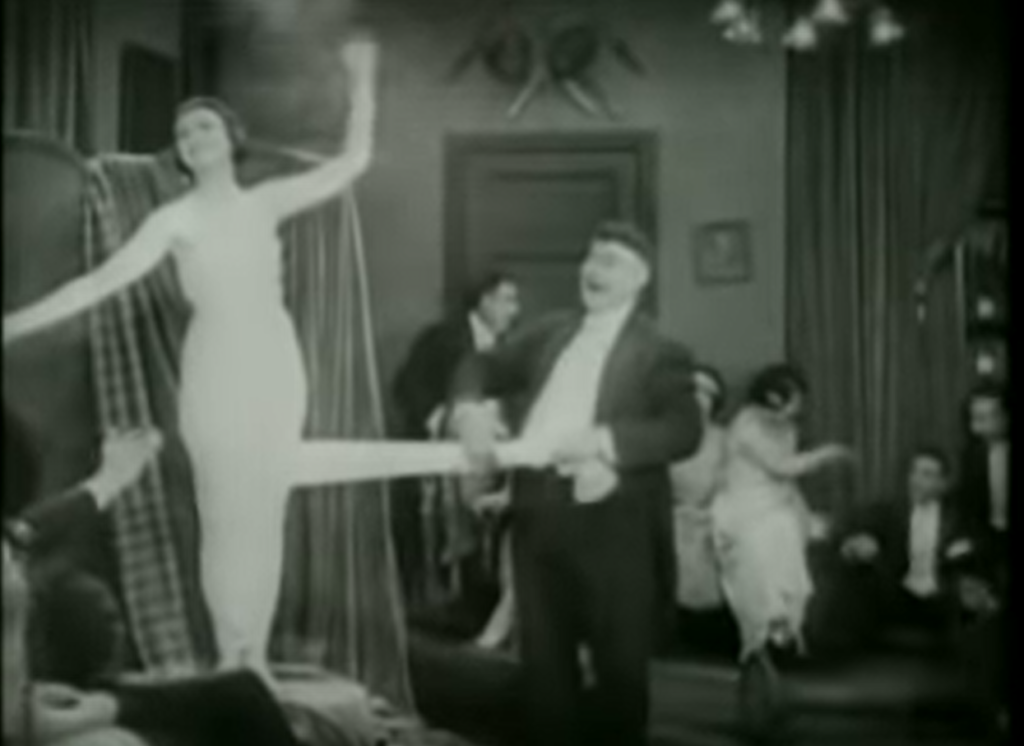Woman of Paris, A (1923)
“Get that woman out of this house!”
|
Synopsis: |
|
Genres, Themes, Actors, and Directors:
Response to Peary’s Review: Despite these important breakthroughs, however, the story in A Woman of Paris remains overly melodramatic, and, quite simply, not all that engaging. I couldn’t muster much interest in what happens to the lovers, and found the ending both abrupt and sappy. The best aspect of the film by far is Adolph Menjou, who steals nearly every scene he’s in, and shows genuine screen charisma. Note: Click here to read a 1977 interview with director Michael Powell, in which he reminisces about watching A Woman of Paris as an impressionable young 18-year-old: “Nobody had ever really done any realistic films at all before, it was all make-believe, you know, and emotions were make-believe, as well as the people… Suddenly, here was a grown-up film, with people behaving as they do in life, and scenes treated with an enormous sophistication.” Redeeming Qualities and Moments:
Must See? Categories
Links: |




One thought on “Woman of Paris, A (1923)”
A once-and-done must – as a competent, early indicator of Chaplin’s versatility (which would eventually lead to more mature work, such as ‘Monsieur Verdoux’ and ‘Limelight’).
In agreement that the story itself is (as Borat would say) not so much. Since most of the characters are frivolous and unchanging, we’re left to follow them in their trivial pursuit without the benefit of any real payoff.
Oh, sure, Purviance has a fleeting moment in which she might turn into a real human being. But it passes – and she returns to being something of a cousin to Dreiser’s ‘Sister Carrie’, a rather dreary ‘heroine’. As a character, Marie is tiresome almost from the get-go. I don’t actually think she feels jilted by her lover: when she calls him from the station, he does tell her “something terrible has happened” and asks her to hold the line a moment – but she doesn’t; she’s the one who blows HIM off. Nor do I agree with Peary that Chaplin treats her with sympathy (well, not until the very end when she has a dramatically convenient turnaround which, to me, seems a bit forced). In fact, note the wonderful character of Marie’s masseuse: without a single word of dialogue and with very expressive eyes, she seems to act as Chaplin’s ‘mouthpiece’ for his distaste of the self-serving Marie and her capricious girlfriends.
I do think Peary is right in citing the film as a rare instance in a silent in which the psychological is intriguingly explored.
His charisma notwithstanding (and in this film it’s considerable), I never really appreciated Menjou’s long, somewhat one-note film career as a cad. At the moment, though, I can recall very much admiring his performance in ‘Paths of Glory’.